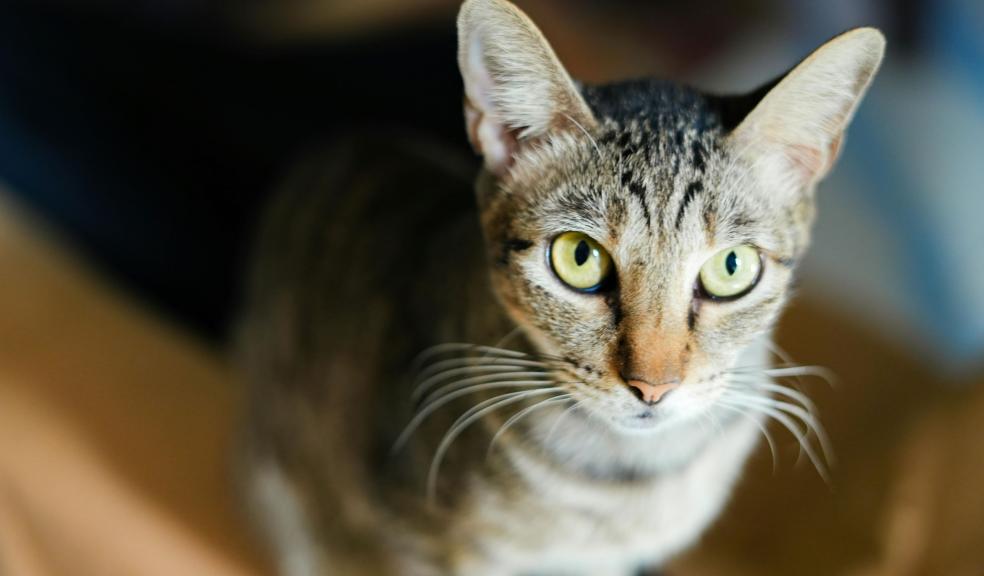
What to do with your cat when you go on holiday
Everyone needs a good break now and then but before you've booked your holiday, there's always the question of what to do with your pets. Thankfully, PDSA Vet Nurse Nina Downing is here to help!
"There are so many options to consider when it comes to what to do with your cat when you go on holiday," explains Nina. "The difficulty is finding the best one for your particular feline friend as all cats are different!"
The best option for your cat
"We recommend cats are kept at home with a trusted and reliable house sitter, preferably one that will stay in your home for the time that you are away. However, that's not always an option for everyone; but you should never leave your cat without anyone to check on them at least a couple of times a day when you go on holiday – even if you have an automatic feeder or cameras throughout your house. Cat holiday care is a must for your furry friend."
Nina says there are five options you can consider:
-
Arrange a trusted house sitter to stay in your home and look after your cat.
-
Ask a friend, neighbour, family member or pet sitter to attend your cat at least twice a day.
-
Book your cat into a cattery – make sure that they are a local council licensed cattery.
-
Home-from-home boarding, where your cat will stay in someone else's home rather than a cattery. Again, make sure that they are licensed by the council.
-
Take your cat with you – but we recommend this as a last resort and only if they have a character that can cope with travel, new places and will be content and calm in strange surroundings.
"All cats are different with unique personalities," she adds. "But most cats will prefer to stay in their own home and find it less stressful than travelling to a new place.
"If your cat is comfortable with strangers and being away from home, a cattery may be an option that you prefer."
Finding the right house or pet sitter
"It's important that you find a house sitter that is right for both you and your cat. You should never hire someone blindly and always do your research. After all, this person will be looking after your cat and coming into your home."
Here are Nina's top tips:
-
Read their profile and check for DBS clearance, reviews and references.
-
Make sure that they have pet sitter insurance, which should include public liability and cover for your pet whilst they are in your care – although this won't include veterinary care.
-
Check if they have been trained in pet first aid for emergencies.
-
If your cat needs medication or special care, make sure that they have experience with this.
-
When you've found a house sitter, arrange a meet-up and introduce them to your cat. Do not hire someone without thorough research, make sure that they are the right person for you and your cat.
-
Ensure that you've booked them with plenty of notice and have someone in mind as a backup, in case of a last-minute cancellation.
-
Make sure that they know your cat's needs. For example, if your cat loves a lot of social interaction or prefers to be left in peace, check that they will provide bespoke care to your cat.
"Sometimes, you just want someone to come and check on your cat and not stay over. If this is the case, we recommend asking a trusted friend, neighbour, family member or pet sitter to attend your cat at least twice a day. Making sure that your furry friend has been fed, given fresh water, had their litter changed and given some attention whilst you are on holiday. You will need them to feel comfortable checking your cat over to make sure they appear well and also feel confident to contact your vet and take them to your vet if they need care."
PDSA has a handy cat sitter checklist so that you don't forget to tell your cat sitter everything they need to know about your cat, such as feeding times, veterinary care and dietary requirements. Download it here.
"Whether you choose a house or pet sitter, be sure to inform your vet that you will be going away for a while and that your cat will be under the care of someone else during that time," adds Nina. "The house or pet sitter will need your vet's contact details in the case of an emergency. They will also need to know your emergency contact details in case they need owner authorisation for any care that your cat may need."
Finding the right cattery
"If you decide to send your furry friend to a cattery, you need to make sure that it'll be a safe and comfortable environment for your cat. We recommend getting your cat used to a cattery from a young age, ideally when they are a kitten, if you travel a lot.
Nina's top tips:
-
Try to get a personal recommendation from someone you know and trust or look at reviews online. You could also ask your vet.
-
Check that the cattery is licensed by the local authority and what star rating they have been given.
-
Go the cattery and ask to look around without an appointment – so they don't have time to prepare, and you can see the cattery in action.
-
Check all the living conditions to make sure that they are warm, secure, clean and comfortable for your cat. Make sure that the individual cat pens have a scratching post, at least one large litter tray- preferably more, toys and somewhere for your cat to sleep and hide. If you have more than one cat and they will be sharing a pen, make sure there are more resources available. The rule to work by when providing resources for multiple cats is one per cat plus one extra. For example, with litter trays, you will need three litter trays if you have two cats sharing.
-
Good catteries will understand that your pet's own items from home will make them feel more at ease and secure, so they should actively encourage you to bring their bed or toys with them for their time at the cattery.
-
Take note of the questions they ask - a good cattery will ask you about your cat and their routine. If they don't ask you anything, be sure to ask them about their type of care and how their service works.
-
Make sure that they have insurance cover for the premises and for your cat while he or she are in their care. This will not include veterinary care.
-
Check their procedures for vet visits and what the procedure is in the event of an emergency. Which vets they would use, yours or there's. You should be expected to complete documentation that includes your vet details and emergency contact details for you in case of an emergency situation as owner authorisation will be necessary.
-
Check that all cats that stay at the cattery will be vaccinated against flu and other diseases.
-
Make sure that your cat will be kept separately from others, and that their living space isn't directly overlooked by other cats as this can be very stressful for them.
Never leave your cat alone
"Whilst there are amazing items you can buy for your cat, such as camera's that link to your phone, microchip cat flaps that only allow your cat access to and from the house and automated feeders, which make your life easier – we recommend that your cat has company overnight and at least two visits a day.
"If your cat becomes ill or injured whilst you are away, without someone there to help, your furry friend is at serious risk of being left in pain or feeling unwell for hours before your sitter next visits."







